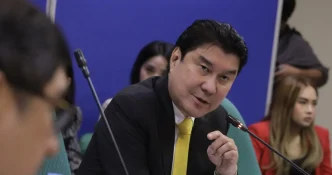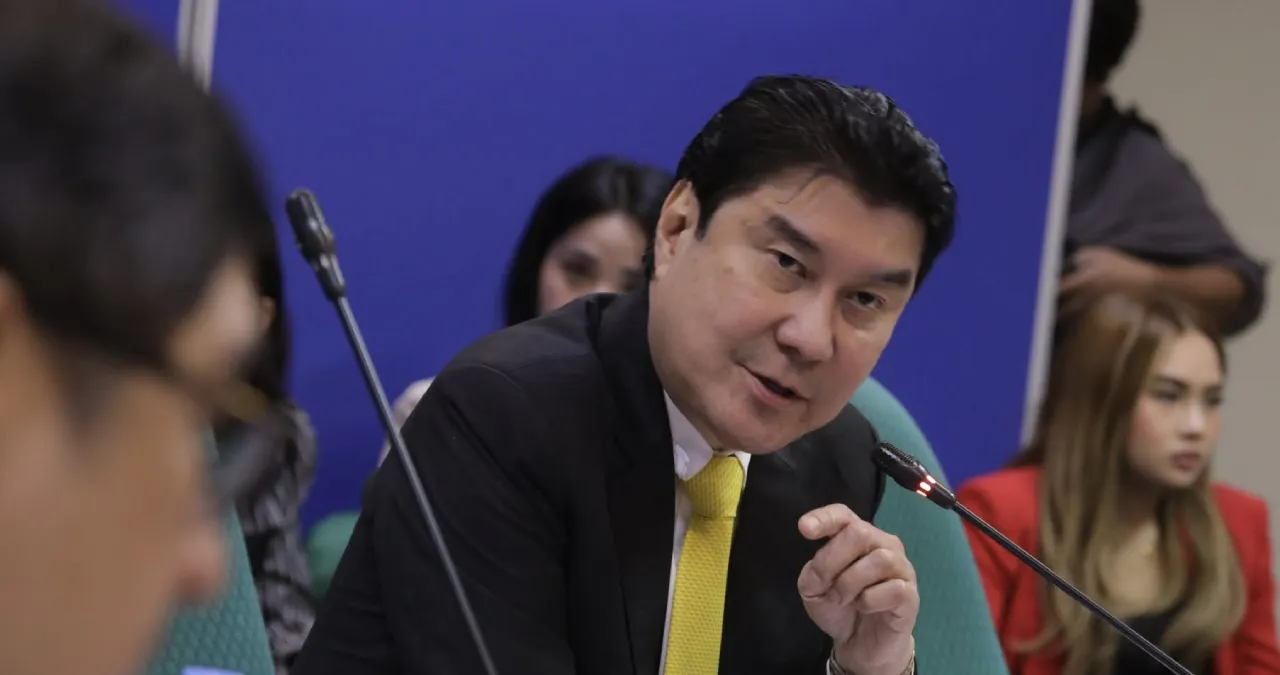Filipino immigrants in the United States, including green card holders, are at increasing risk of detention and deportation due to past criminal offenses—even minor ones—amid tightened immigration enforcement, Senator Raffy Tulfo has warned. The alert comes as recent actions by US Immigration and Customs Enforcement (ICE) have targeted individuals with prior convictions, raising concerns among Filipino communities across the country.
Escalating Enforcement and Detentions
Senator Tulfo, who chairs the Senate Committee on Migrant Workers in the Philippines, issued the caution following a courtesy visit to the Philippine Consulate General in San Francisco. During the briefing, consulate officials informed him of a surge in ICE detentions affecting Filipinos, with 17 individuals recently detained. Of those, five have been released, while three have already been deported. Most of the detainees had criminal records, ranging from minor infractions to more serious offenses.
“Even if they’ve already served their sentences, some were still arrested when they tried to re-enter the US, either at the airport or the border” Tulfo stated during his visit. He highlighted that routine identity checks could flag prior convictions, including seemingly trivial matters like traffic violations, potentially leading to immediate detention by ICE agents.
Consulate data revealed a broader issue, with 55 Filipinos currently detained across the US due to pending criminal cases. Among them, two individuals are on death row, underscoring the severity of some cases. The San Francisco consulate, which serves a vast region including Northern California, Alaska, Colorado, Idaho, Montana, Northern Nevada, Oregon, Utah, Washington, and Wyoming, has been at the forefront of addressing these challenges.
Consular Support Amid Rising Concerns
Consul General Neil Frank Ferrer reassured Tulfo that the consulate is actively supporting affected nationals through the Assistance-to-Nationals (ATN) fund, which provides legal and welfare assistance. Ferrer also took the opportunity to counter misinformation circulating online, clarifying that dual citizens are not at risk of losing their status. “There is no need for them to renounce their Filipino citizenship” he emphasized, addressing unfounded rumors that have caused alarm among the diaspora.
Tulfo’s visit coincided with a dual citizenship oath-taking ceremony at the consulate, where he witnessed Filipinos formally reacquiring their Philippine nationality. The event served as a poignant reminder of the deep ties many maintain with their homeland, even as they navigate the complexities of life in the US.
Broader US Immigration Policies
The heightened enforcement faced by Filipinos is part of a larger shift in US immigration policy. While recent presidential orders, such as Executive Order 14161 signed in 2025, prioritize the deportation of immigrants with criminal histories or those deemed national security risks, they do not specifically target ASEAN nationals as a group. The orders mention specific suspensions for nationals from countries like Haiti, but no broad restrictions apply to Filipinos or other Southeast Asian communities.
Nonetheless, data from US Customs and Border Protection (CBP) and ICE indicates a significant uptick in arrests and detentions nationwide. Of approximately 59,000 detainees currently held, roughly 75 percent have no serious convictions, suggesting a wide net that captures individuals for minor or long-resolved offenses. While Filipinos have been notably affected—with the aforementioned 17 detentions and subsequent deportations—no other ASEAN nationals appear to have been similarly singled out in recent sweeps, based on available reports.
This discrepancy raises questions about whether Filipino immigrants are being disproportionately impacted by enforcement actions, possibly due to specific patterns in criminal record checks or consular reporting. The lack of comprehensive data on other ASEAN groups makes it difficult to draw firm conclusions, but the Filipino community’s concerns are palpable.
Historical Context and Community Impact
The Filipino diaspora in the US numbers over 4 million, with many holding green cards or citizenship through family ties, employment, or military service. Historically, Filipinos have faced unique immigration challenges, partly due to the Philippines’ colonial history with the US and the resulting migration patterns. While many have integrated successfully, past criminal records—even for minor offenses committed decades ago—can resurface under stricter enforcement regimes.
Community advocates argue that such policies fail to account for rehabilitation or the contributions of long-term residents. A traffic violation from 20 years ago, for instance, could now jeopardize a family’s stability if it leads to detention or deportation. The emotional and financial toll on families is significant, as loved ones face sudden separation and uncertainty.
In San Francisco, a hub for Filipino Americans, local organizations have reported increased anxiety among community members. Many fear routine interactions with authorities, such as renewing a driver’s license or traveling internationally, could trigger an ICE intervention. “We’re advising people to know their rights and carry documentation of their legal status at all times” said a community leader who requested anonymity due to the sensitivity of the issue.
Policy Implications and Philippine Government Response
The Philippine government, through its consular network and legislative bodies like Tulfo’s committee, has long advocated for the rights of overseas Filipino workers (OFWs) and immigrants. The current situation in the US underscores the need for stronger bilateral agreements on immigration and legal protections. While the ATN fund provides immediate relief, it is not a long-term solution to systemic issues of enforcement and deportation.
Tulfo’s warning also serves as a call to action for Filipinos planning to travel to or reside in the US. He urged individuals with past offenses to seek legal advice before attempting re-entry, as border checks have become more stringent. “It’s better to be prepared than to be caught off guard” he advised, emphasizing the importance of understanding one’s immigration status and history.
At the policy level, there is speculation about whether the Philippine government might push for exemptions or leniency for minor offenses in discussions with US counterparts. However, such negotiations would likely face significant hurdles given the current political climate in the US, where immigration remains a deeply divisive issue. Any potential reforms or bilateral agreements would require sustained diplomatic efforts and bipartisan support in Washington—prospects that remain uncertain.
Looking Ahead: Challenges and Resilience
As US immigration enforcement continues to tighten, Filipino immigrants find themselves navigating an increasingly precarious landscape. The cases of detention and deportation highlighted by Senator Tulfo are a stark reminder of the vulnerabilities faced by even long-term residents with minor criminal histories. While consular support offers a lifeline, broader systemic changes are needed to address the root causes of these challenges.
For now, the Filipino community in the US remains resilient, leaning on cultural ties and local networks to weather the storm. Yet, as policies evolve and enforcement actions intensify, many are left wondering how far the net of detention might stretch—and what it means for their future in a country they’ve long called home.
















